Andrew M. McDonald
Fitting Spectral Decay with the $k$-Support Norm
Jan 04, 2016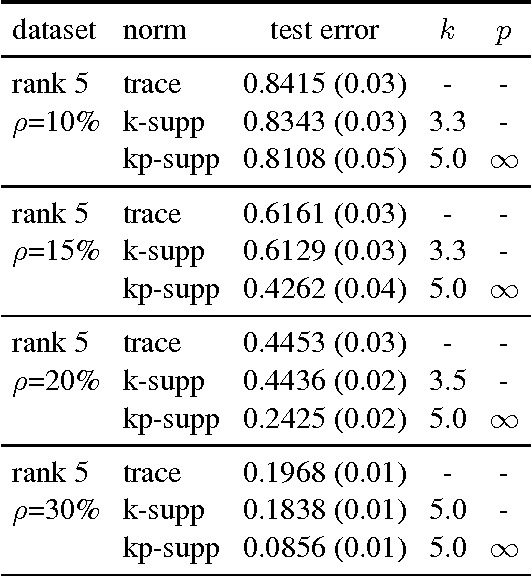
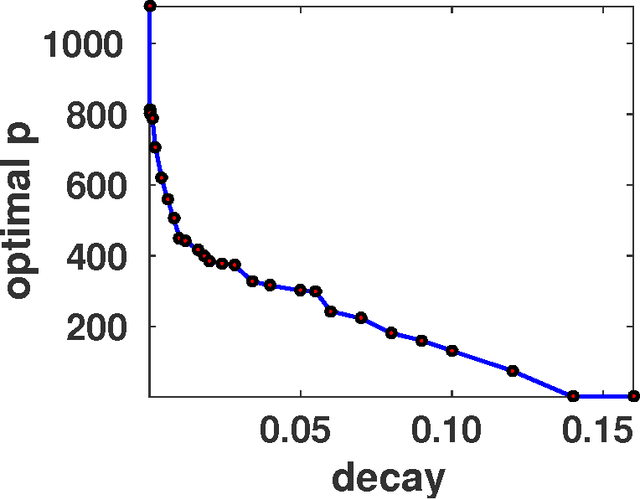
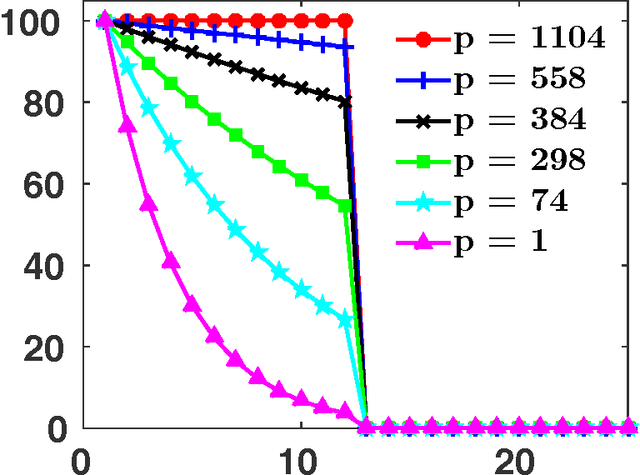

Abstract:The spectral $k$-support norm enjoys good estimation properties in low rank matrix learning problems, empirically outperforming the trace norm. Its unit ball is the convex hull of rank $k$ matrices with unit Frobenius norm. In this paper we generalize the norm to the spectral $(k,p)$-support norm, whose additional parameter $p$ can be used to tailor the norm to the decay of the spectrum of the underlying model. We characterize the unit ball and we explicitly compute the norm. We further provide a conditional gradient method to solve regularization problems with the norm, and we derive an efficient algorithm to compute the Euclidean projection on the unit ball in the case $p=\infty$. In numerical experiments, we show that allowing $p$ to vary significantly improves performance over the spectral $k$-support norm on various matrix completion benchmarks, and better captures the spectral decay of the underlying model.
New Perspectives on $k$-Support and Cluster Norms
Dec 27, 2015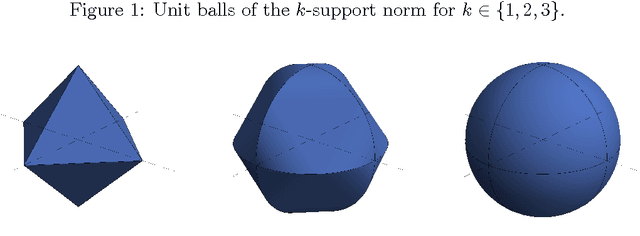

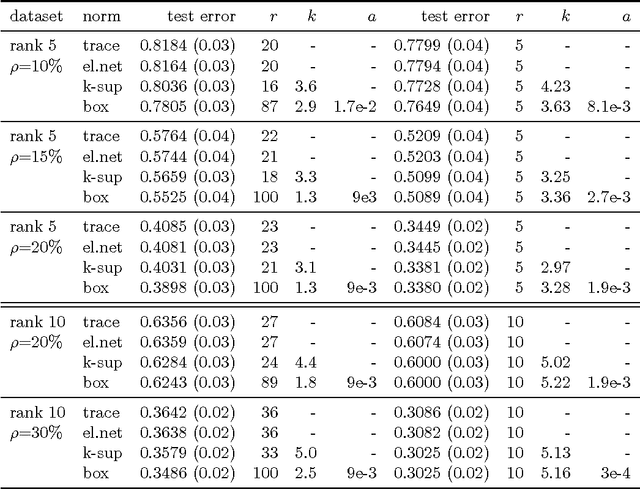
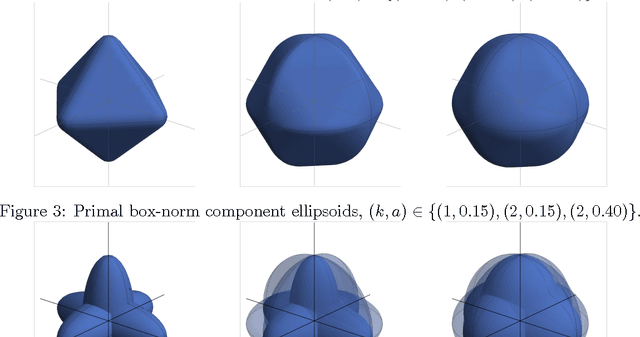
Abstract:We study a regularizer which is defined as a parameterized infimum of quadratics, and which we call the box-norm. We show that the k-support norm, a regularizer proposed by [Argyriou et al, 2012] for sparse vector prediction problems, belongs to this family, and the box-norm can be generated as a perturbation of the former. We derive an improved algorithm to compute the proximity operator of the squared box-norm, and we provide a method to compute the norm. We extend the norms to matrices, introducing the spectral k-support norm and spectral box-norm. We note that the spectral box-norm is essentially equivalent to the cluster norm, a multitask learning regularizer introduced by [Jacob et al. 2009a], and which in turn can be interpreted as a perturbation of the spectral k-support norm. Centering the norm is important for multitask learning and we also provide a method to use centered versions of the norms as regularizers. Numerical experiments indicate that the spectral k-support and box-norms and their centered variants provide state of the art performance in matrix completion and multitask learning problems respectively.
New Perspectives on k-Support and Cluster Norms
Mar 06, 2014



Abstract:The $k$-support norm is a regularizer which has been successfully applied to sparse vector prediction problems. We show that it belongs to a general class of norms which can be formulated as a parameterized infimum over quadratics. We further extend the $k$-support norm to matrices, and we observe that it is a special case of the matrix cluster norm. Using this formulation we derive an efficient algorithm to compute the proximity operator of both norms. This improves upon the standard algorithm for the $k$-support norm and allows us to apply proximal gradient methods to the cluster norm. We also describe how to solve regularization problems which employ centered versions of these norms. Finally, we apply the matrix regularizers to different matrix completion and multitask learning datasets. Our results indicate that the spectral $k$-support norm and the cluster norm give state of the art performance on these problems, significantly outperforming trace norm and elastic net penalties.
 Add to Chrome
Add to Chrome Add to Firefox
Add to Firefox Add to Edge
Add to Edge